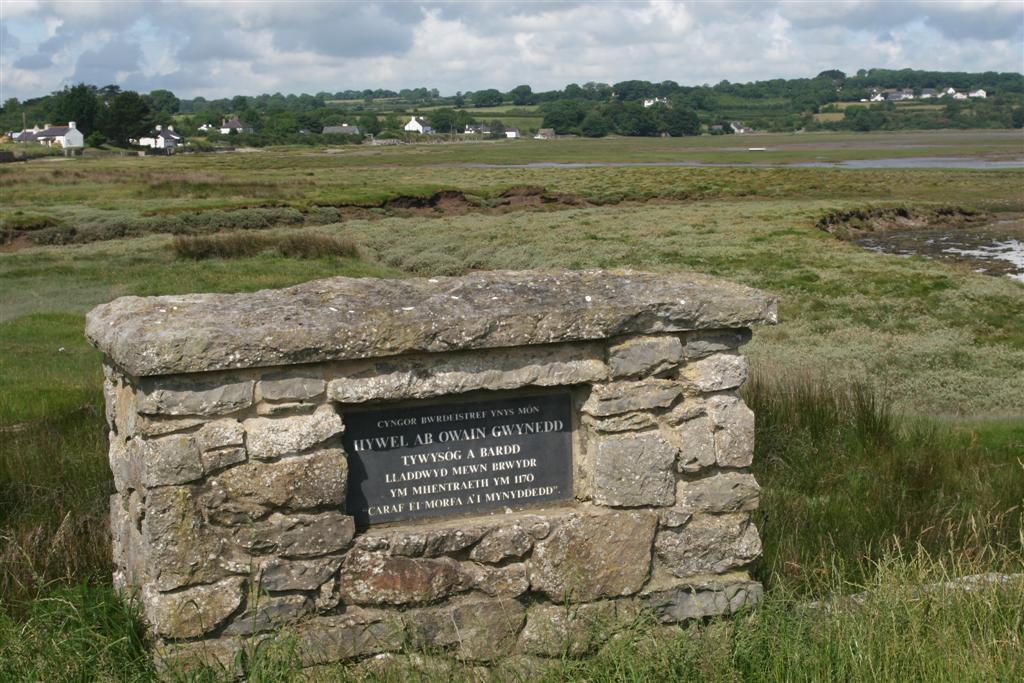Keueisy vun dunn diwyrnawd;
keueisy dwy, handid mwy eu molawd;
keueisy deir a pheddir a phawd;
keueisy bymp o rei gwymp eu gwyngnawd;
keueisy chwech heb odech pechawd;
gwen glaer uch gwengaer yt ym daerhawd;
keueisy sseith ac ef gweith gordygnawd;
keueisy wyth yn hal pwyth peth or wawd yr geint;
ys da deint rac tauaed.
"Gorhoffedd" (The Boast), line 75; translation from Robert Gurney Bardic Heritage (London: Chatto & Windus, 1969) p. 41.
Hywel ab Owain Gwynedd: Citations en anglais
Karafy gaer wennglaer o du gwennylan;
myn yd gar gwyldec gweled gwylan
yd garwny uyned, kenym cared yn rwy.
Ry eitun ouwy y ar veingann
y edrtch uy chwaer chwerthin egwan,
y adrawt caru, can doeth yn rann.
"Awdl V" (Ode 5), line 1; translation from Gwyn Williams (trans.) Welsh Poems, 6th Century to 1600 (London: Faber & Faber, 1973) p. 43.
Caraf trachas Lloegyr, lleudir goglet hediw,
ac yn amgant y Lliw lliwas callet.
Caraf am rotes rybuched met,
myn y dyhaet my meith gwyrysset.
Carafy theilu ae thew anhet yndi
ac wrth uot y ri rwyfaw dyhet.
"Gorhoffedd" (The Boast), line 3; translation from Robert Gurney Bardic Heritage (London: Chatto & Windus, 1969) p. 39.
